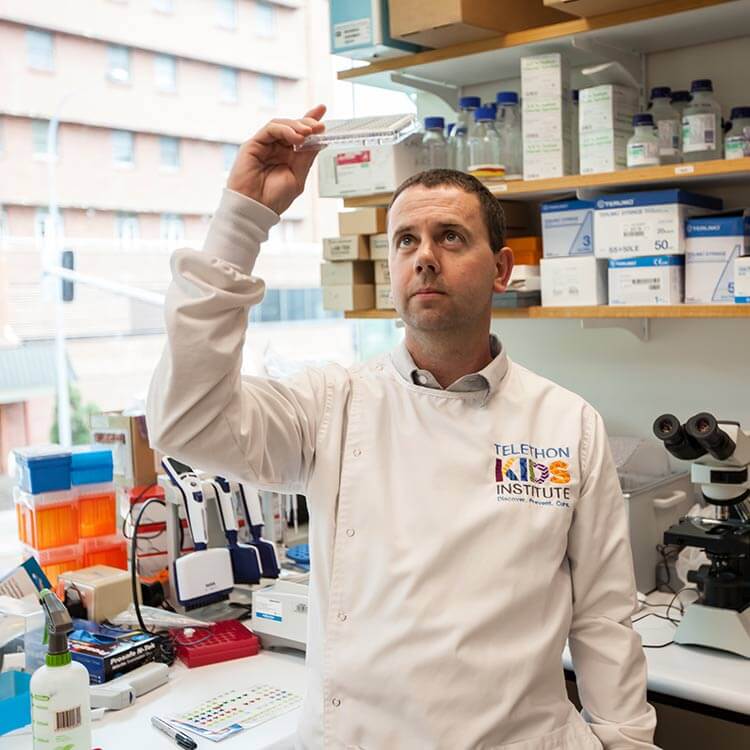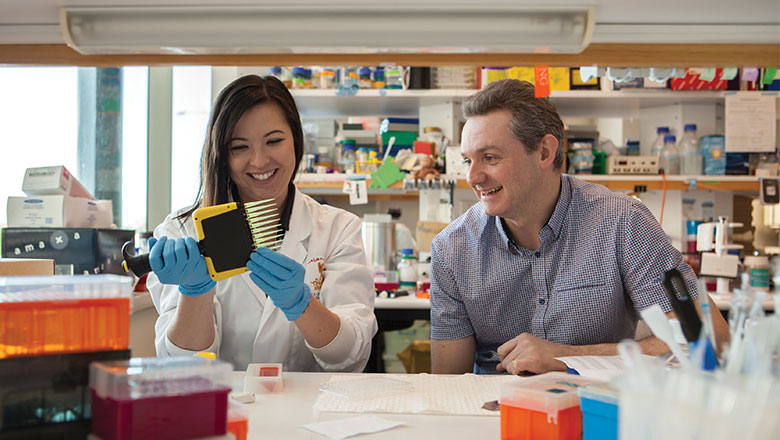Search

A The Kids Research Institute Australia researcher will investigate new ways to harness the body’s own immune system to fight melanoma, thanks to Cancer Council WA funding.

Dr Nick Gottardo and Dr Raelene Endersby from The Kids Research Institute Australia are the driving force behind an innovative, global action group on child brain cancer.
The goal of Project Children's Cancer is to discover new therapies that are more effective and less toxic to fight aggressive cancers in babies and children.
Researchers from Perth's Telethon Institute are calling for further investigation into a potential link between maternal smoking and childhood brain tumours.
A new Telethon Institute study has revealed a potential link between pesticide treatments in the home and a higher risk of children developing brain tumours.
A national study led by Perth's Telethon Institute has found that folic acid supplements before and during pregnancy reduces the risk of childhood brain tumours
Research at Telethon Institute has shown a correlation between brain tumours in young children and their parents' exposure to diesel exhaust fumes before birth.
Researchers at Telethon Institute have found genetic differences in the rare and aggressive NUT-midline carcinoma, presenting new treatment opportunities.
A new study led by Australian researchers has outlined for the first time the best treatment options for children suffering from meningioma
The Telethon Adventurers have announced a new research fellowship to investigate the genes involved in childhood brain tumours.
